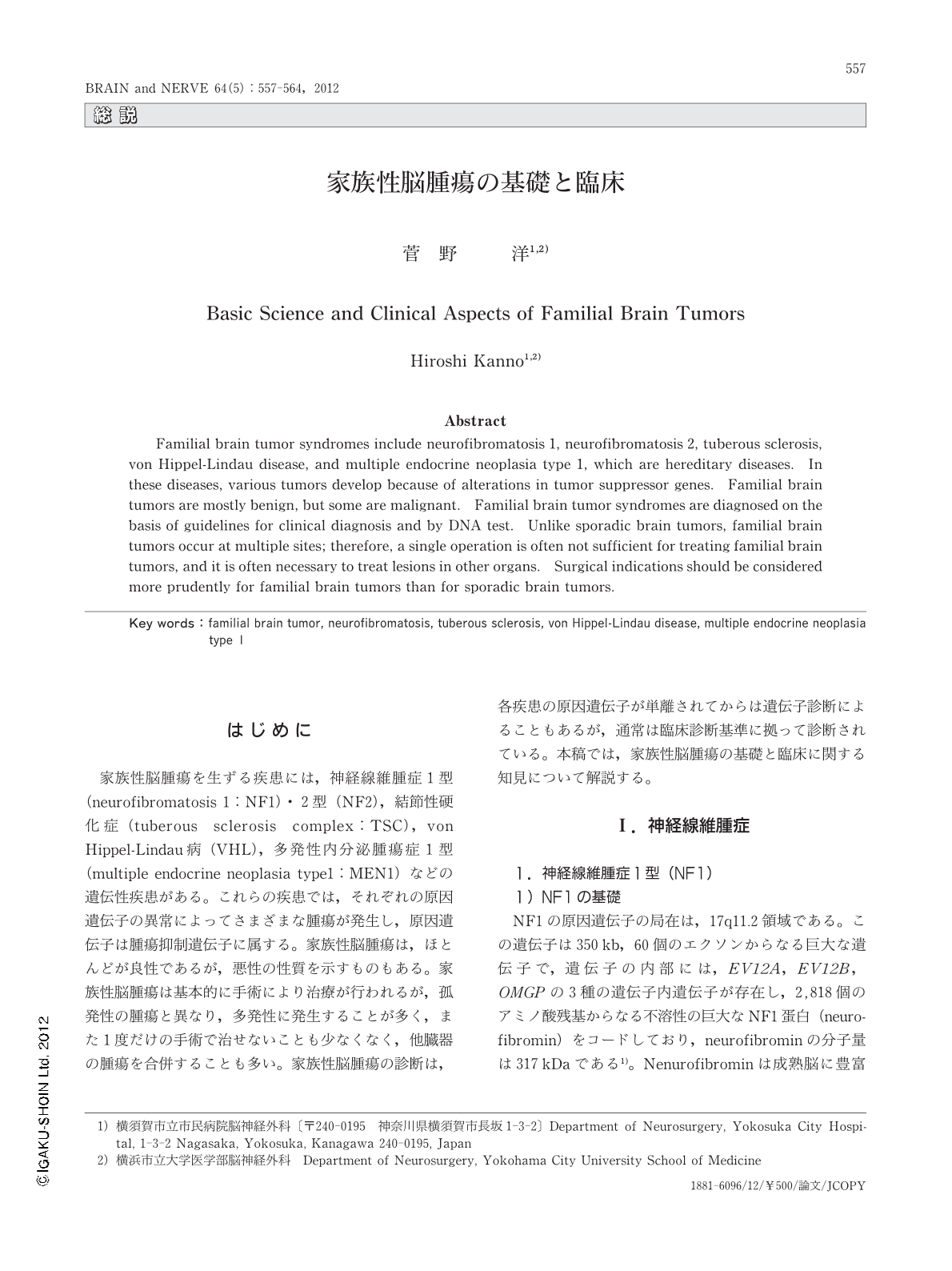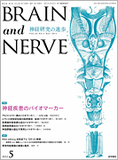Japanese
English
- 有料閲覧
- Abstract 文献概要
- 1ページ目 Look Inside
- 参考文献 Reference
はじめに
家族性脳腫瘍を生ずる疾患には,神経線維腫症1型(neurofibromatosis 1:NF1)・2型(NF2),結節性硬化症(tuberous sclerosis complex:TSC),von Hippel-Lindau病(VHL),多発性内分泌腫瘍症1型(multiple endocrine neoplasia type1:MEN1)などの遺伝性疾患がある。これらの疾患では,それぞれの原因遺伝子の異常によってさまざまな腫瘍が発生し,原因遺伝子は腫瘍抑制遺伝子に属する。家族性脳腫瘍は,ほとんどが良性であるが,悪性の性質を示すものもある。家族性脳腫瘍は基本的に手術により治療が行われるが,孤発性の腫瘍と異なり,多発性に発生することが多く,また1度だけの手術で治せないことも少なくなく,他臓器の腫瘍を合併することも多い。家族性脳腫瘍の診断は,各疾患の原因遺伝子が単離されてからは遺伝子診断によることもあるが,通常は臨床診断基準に拠って診断されている。本稿では,家族性脳腫瘍の基礎と臨床に関する知見について解説する。
Abstract
Familial brain tumor syndromes include neurofibromatosis 1,neurofibromatosis 2,tuberous sclerosis,von Hippel-Lindau disease,and multiple endocrine neoplasia type 1,which are hereditary diseases. In these diseases,various tumors develop because of alterations in tumor suppressor genes. Familial brain tumors are mostly benign,but some are malignant. Familial brain tumor syndromes are diagnosed on the basis of guidelines for clinical diagnosis and by DNA test. Unlike sporadic brain tumors,familial brain tumors occur at multiple sites; therefore,a single operation is often not sufficient for treating familial brain tumors,and it is often necessary to treat lesions in other organs. Surgical indications should be considered more prudently for familial brain tumors than for sporadic brain tumors.

Copyright © 2012, Igaku-Shoin Ltd. All rights reserved.


